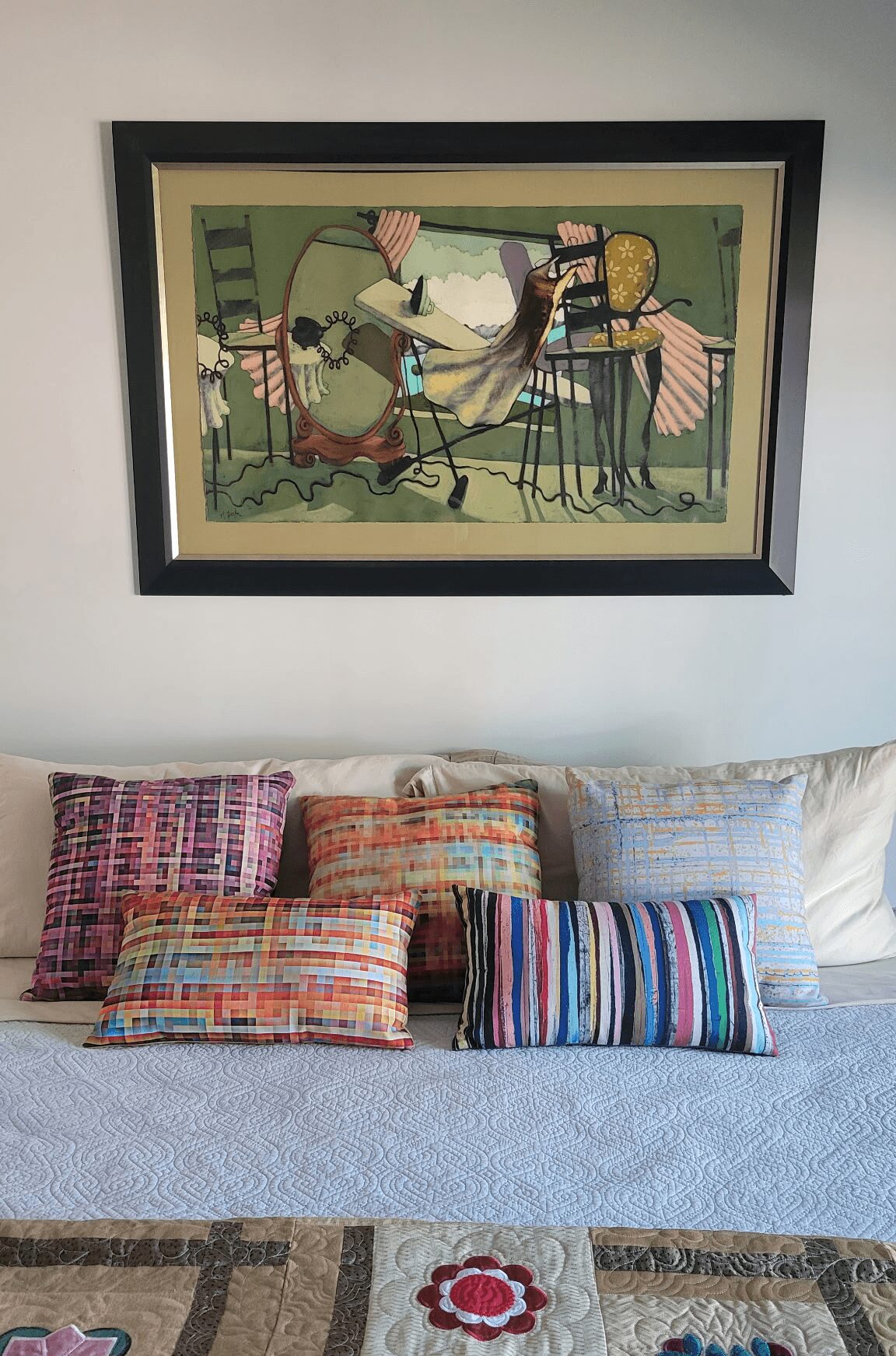

Eben Lee Hall shared their story and experiences with us recently and you can find our conversation below.
Hi Eben Lee, thank you so much for taking time out of your busy day to share your story, experiences and insights with our readers. Let’s jump right in with an interesting one: Who are you learning from right now?
One of my professor from grad school, Dr. Laura Evans has written a book called ‘The Atlas of Art Crime–Thefts, Vandalism, and Forgeries.’ It’s a engrossing look at the darker side of art and the art world and is truly fascinating. The stories are intriguing and many works of art are still missing to this day. I received my Art Museum Education Certification from Dr. Evans, her classes were amazing and I very much enjoy learning about the sordid side of art.
Can you briefly introduce yourself and share what makes you or your brand unique?
My name is Eben Lee Hall — I’m a visual artist, educator, and the founder of Eben Lee Hall Designs, where I create original abstract paintings, fine art–inspired home decor, and more recently, trompe-l’œil panel works that explore the illusion of carved stone and the beauty of architectural fragments. My background is rooted in both studio practice and art education: I teach Art Appreciation and Design at Weatherford College, where I help students discover how the Elements of Art and Principles of Design shape the way we see and make meaning.
What makes my work unique is its deep connection to texture, time, and memory. Whether I’m creating bold, color-driven abstracts or realistic panels that mimic Italian stonework, I’m always looking to bridge history and modernity — to make ancient aesthetics feel tactile and alive today. My current series was inspired by fragments I encountered while traveling in Italy, and each piece aims to honor the craftsmanship of the past while creating something new.
Through my studio and teaching practice, I’m committed to helping others reconnect with the power of visual language — and to making spaces feel more thoughtful, expressive, and human through art.
Appreciate your sharing that. Let’s talk about your life, growing up and some of topics and learnings around that. Who taught you the most about work?
That would unquestionably be my brother, Eric Glen Hall. He’s one of the most high-achieving, driven individuals I’ve ever known — his work ethic is unmatched, and simply watching how he approaches his craft has always pushed me to hold myself to a higher standard. I’ve been especially fortunate that he works in the same creative field — art and interior design — which means I’ve not only learned from him, I’ve also had the chance to work alongside him. From installing art in beautifully designed spaces to collaborating on original pieces, our shared projects have become foundational experiences in my own art practice. Each one has taught me something lasting — about discipline, detail, and the quiet integrity of doing great work for its own sake.
If you could say one kind thing to your younger self, what would it be?
I’d tell my younger self to hold on to your innocence for as long as you can — and to always look for the good, even when it’s hard to find. In time, you’ll discover the value of philosophy, especially Stoicism, which will teach you one of life’s most important lessons: you can’t control everything, but you can control how you respond. Your mind is your strongest tool — learn to master your reactions, stay steady in the face of adversity, and don’t let the world harden your heart.
Alright, so if you are open to it, let’s explore some philosophical questions that touch on your values and worldview. What are the biggest lies your industry tells itself?
“If it doesn’t sell, it’s not good.” The marketplace is not a meritocracy. Some extraordinary art never finds a buyer; some mediocre art sells for millions. Visibility, privilege, trendiness, and connections often matter more than quality. That’s why we focus in the classroom on how art functions, not what price tag it carries. We study ancient sculptures, Baroque masterpieces, minimalist installations — not because they’re all commercially successful, but because each one shows us how artists use the Elements of Art and Principles of Design to communicate.
Okay, so let’s keep going with one more question that means a lot to us: What is the story you hope people tell about you when you’re gone?
I hope they say I lived with integrity, created with intention, and taught with heart. That I paid attention to the quiet details in art, in people, and in life, and helped others do the same. I hope my work felt timeless, my teaching made a difference, and my presence left something meaningful behind.
Contact Info:
- Website: https://www.ebenleehalldesigns.com
- Instagram: @ebenleehalldesigns
- Linkedin: Eben Lee Hall
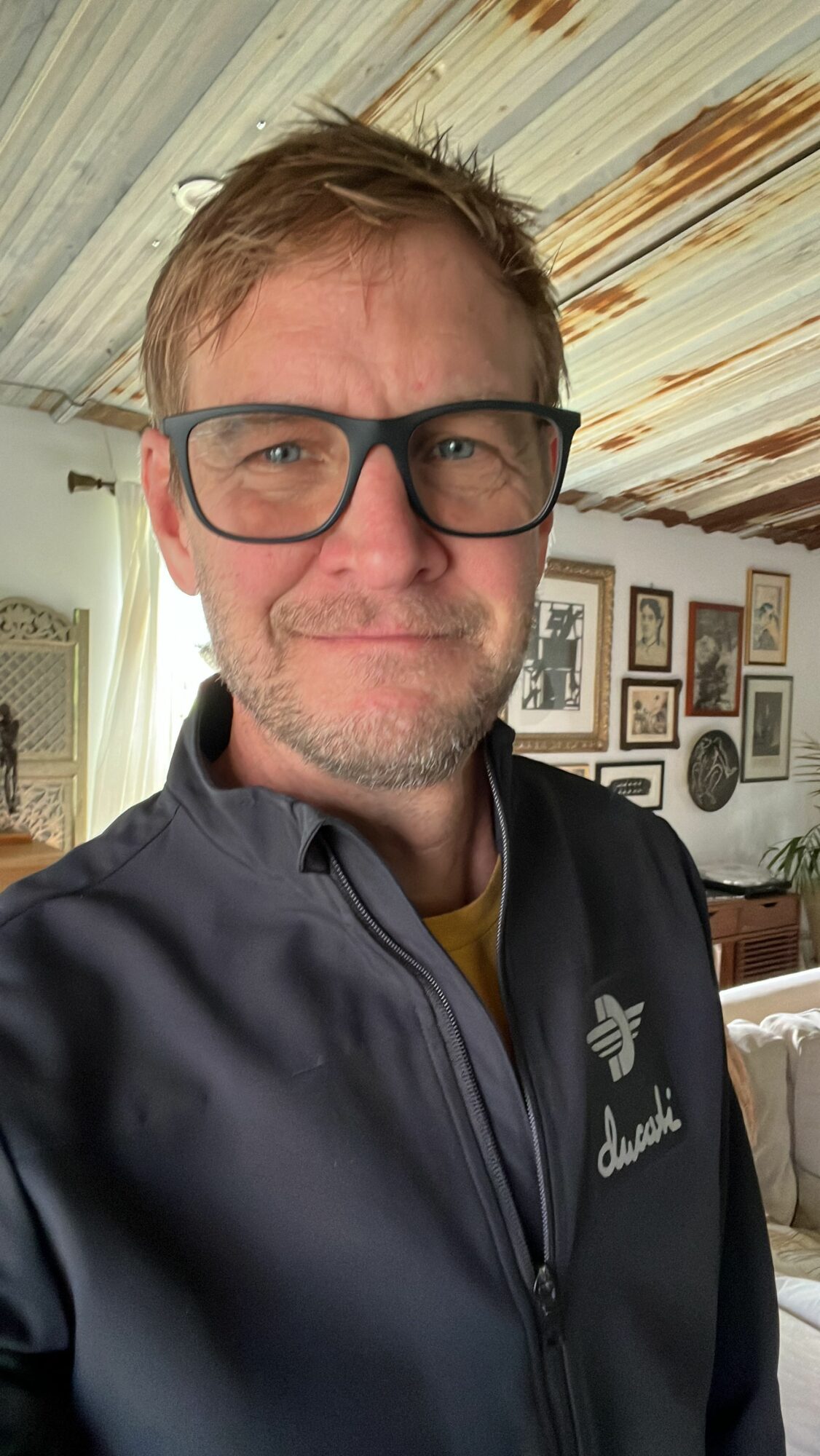

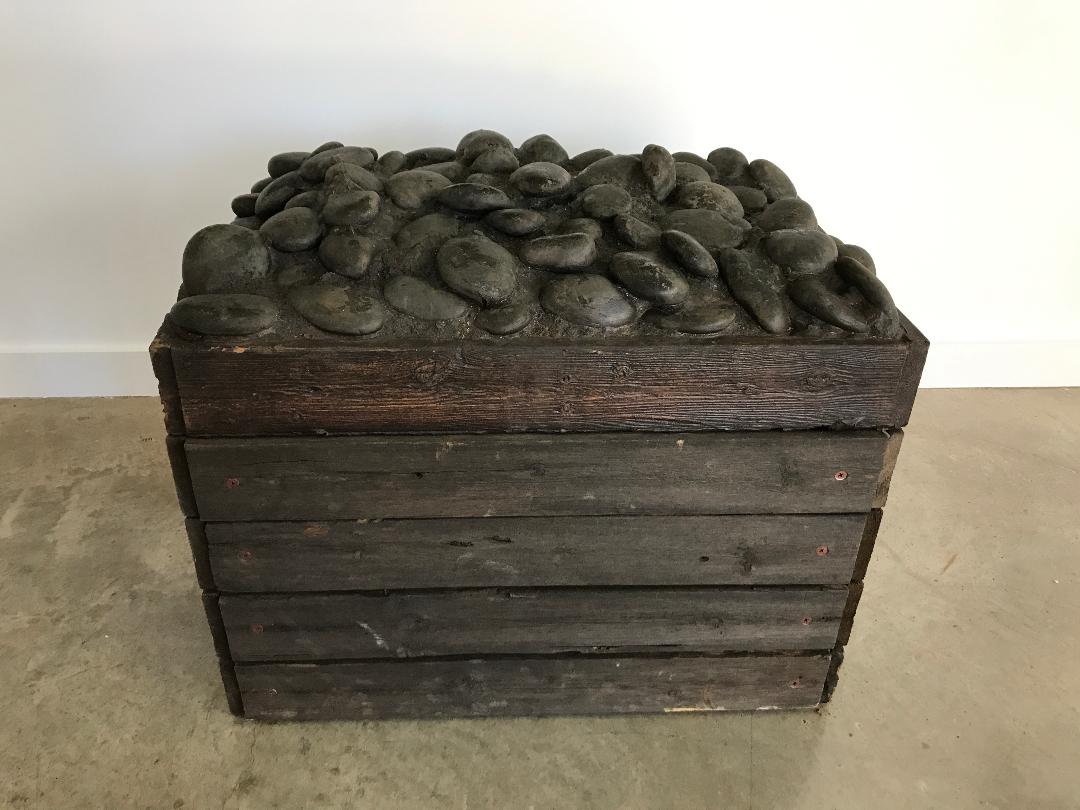
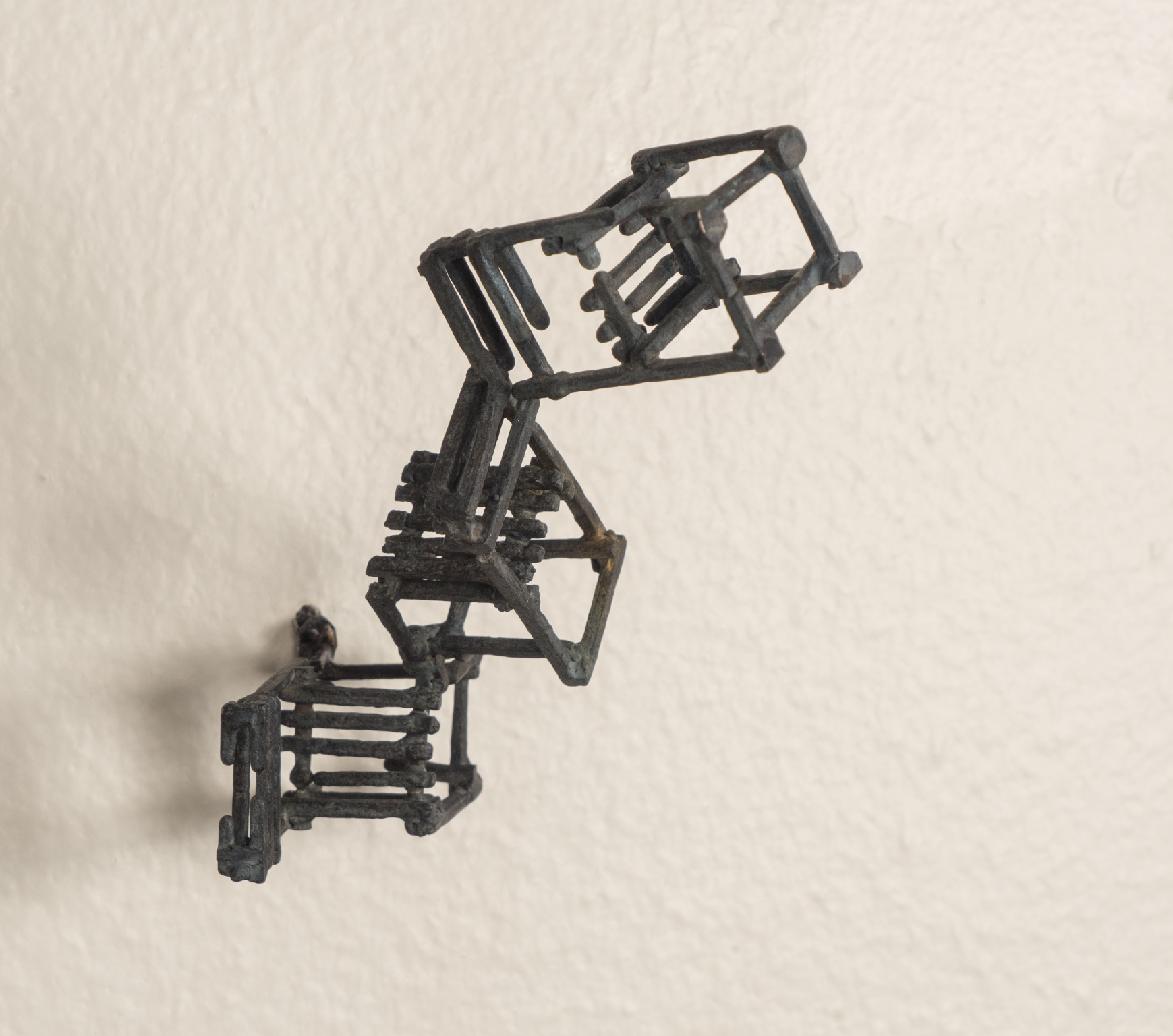
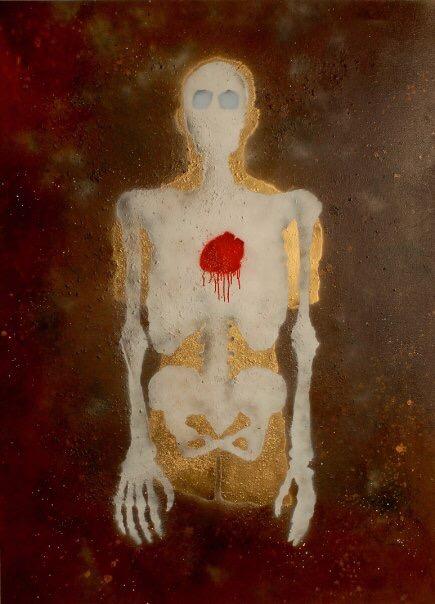
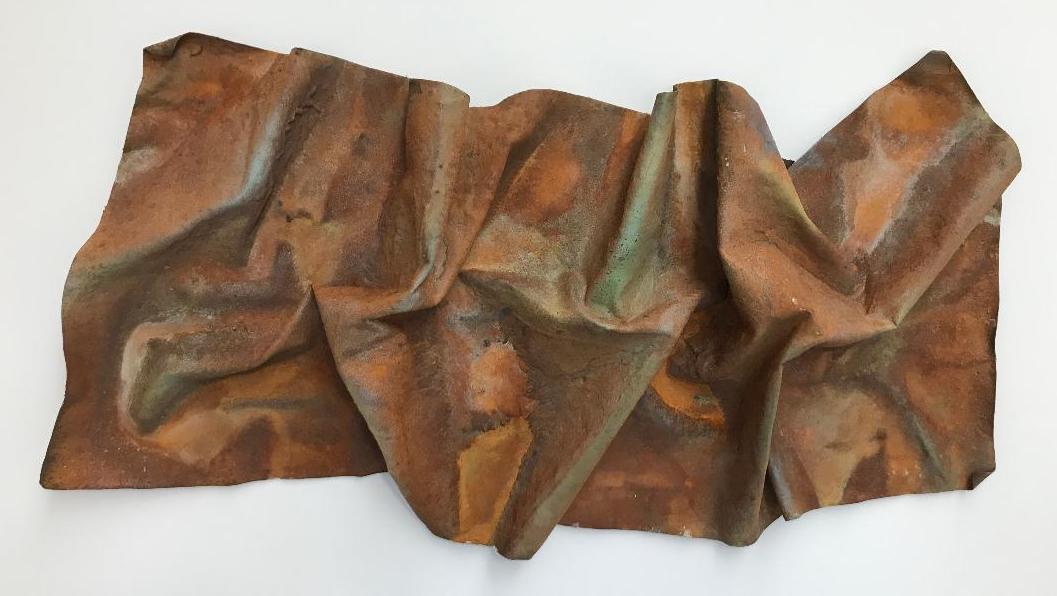

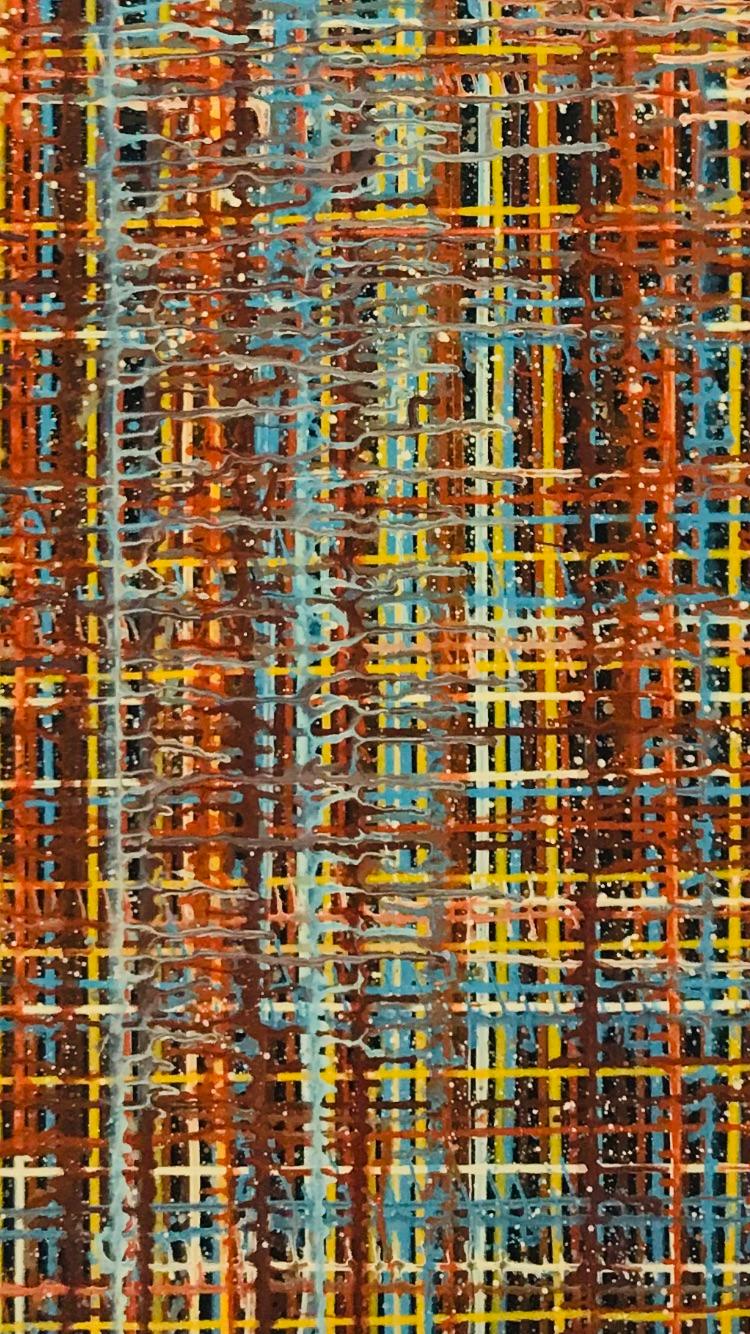
Image Credits
All images provided by Eben Lee Hall.










